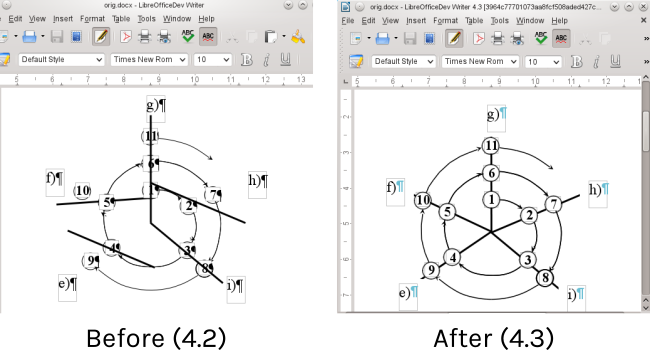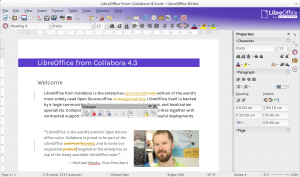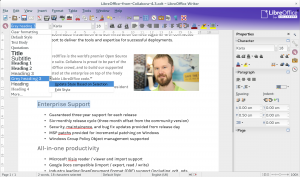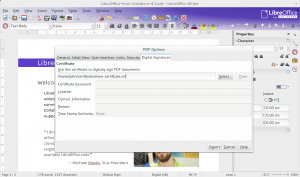
Today we release LibreOffice-from-Collabora 4.3, featuring a plethora of new features from Collabora and the community. Together with all features from LibreOffice 4.3 tested and hardened, we’ve also included important back-ported improvements from the latest LibreOffice 4.4 Fresh.
Packed with features
Huge improvements over LibreOffice-from-Collabora 4.2
With more than 40 new improvements tested and included from The Document Foundation’s LibreOffice 4.3, LibreOffice-from-Collabora 4.3 offers benefits across the board, including performance, user interface, and interoperability features. For the full list included from LibreOffice 4.3, see The Document Foundation’s 4.3 release notes.
DrawingML import/export

- Brand new support for import / export of DrawingML shapes and TextFrames to DOCX files comes from Collabora Productivity Engineer Miklos Vajna. The result is drastically improved rendering of shapes and TextFrames contained within DOCX documents.
Improvements to document comments
- Import and export of nested comments is now supported in ODF, DOC, DOCX and RTF documents.
- Comments can now be printed next to the text in the right margin as they appear on screen.
- All comments in a document can adopt the same style in a single click via the “format all comments” feature.
The freshest features back-ported
As well as all the features from LibreOffice 4.3, LibreOffice-from-Collabora also include five back-ported features from the latest LibreOffice 4.4 Fresh. These include:
Improvements to Track Changes

- A new “track changes” toolbar, complete with new icons, provides easy access to ten different functions, including “show / hide changes”, “record changes”, and “compare document”.
- The “Accept Change” and “Reject Change” commands now automatically jump to the next change.
New style menu options

- The style drop-down menu now offers an additional sub-menu for each style offering to edit or update the style that is selected.
Digital signatures

- PDF documents can now be digitally signed with a certificate, proving the identity of the document author.
Read only mode

- Documents opened in read only with show a highlighted warning message during viewing, informing the user that the file cannot be edited, with the option to switch to edit mode.X

